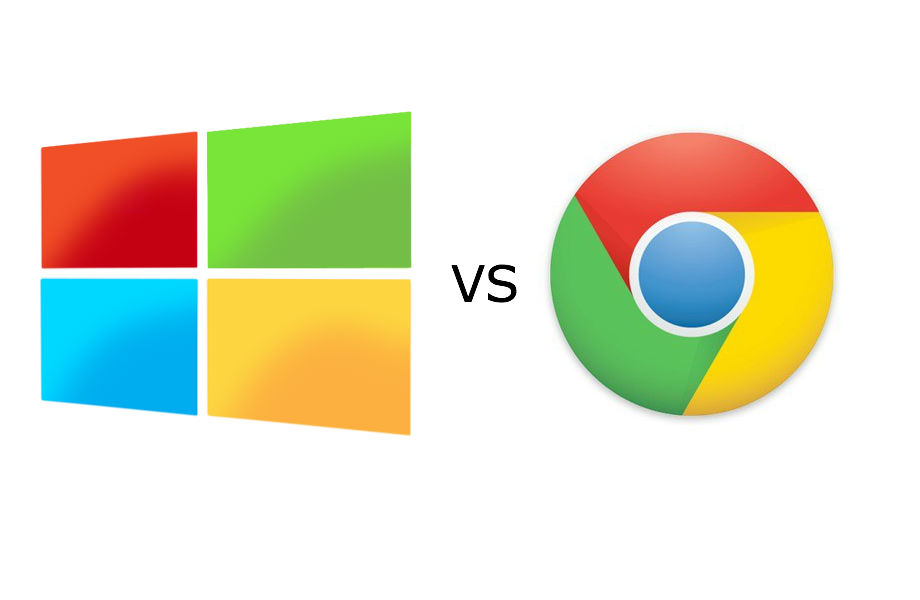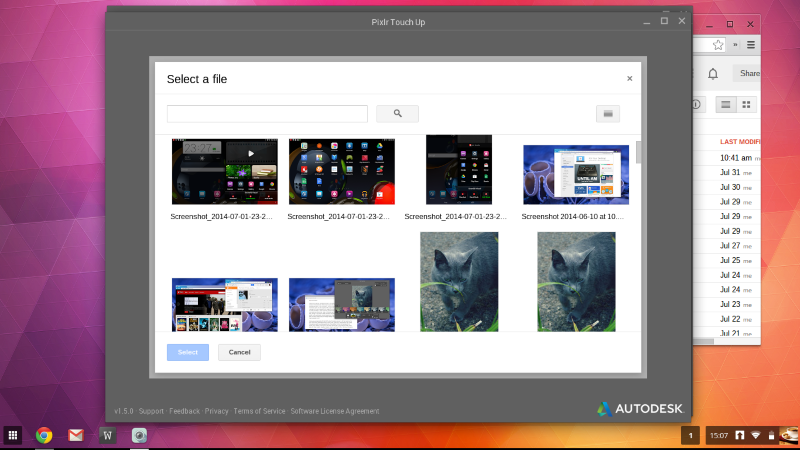Windows 8.1 vs Google Chrome OS review
Can your business save money by using Chrome OS instead of Windows?


Cloud and Connectivity
Connectivity is often seen as the albatross around the neck of Chrome OS. Most Chrome apps are online apps running on a remote server, working with data also held remotely. Pull the connection and you can't access either. Reliance on connection is not a problem in an office with a stable Wi-Fi, but it is on the move, or even in areas where connectivity is slow or flakey.
To mitigate this, Google cleverly made its Drive app a core part of Chrome OS, so data can be cached locally and synced in the cloud when connectivity returns. It also made it possible for apps to run offline through Chrome extensions, so that they would keep working even when there was no internet to be found.
Finally, Chrome OS now supports small native apps which run direct from the Chromebook or Chromebox. These are often small and limited in scope or features, but you can use them to make notes, sketch out a document or make quick adjustments to a photo. Sometimes it gets a bit clunky - Google Docs documents created offline sometime fail to sync with Google Drive without some prodding but the offline experience is improving all the time.

Windows doesn't have this problem unless you're using online apps or services. Applications all run locally and of course data can be synced to cloud services if you wish. Microsoft is pushing OneDrive as the default location for saving documents in Office or SharePoint and OneDrive Pro in an enterprise environment but you're free to work in any way you please. As a result, Windows is less reliant on an internet connection.
This comes down to the requirements of your business, and most of all where your users will be working. If the answer is mostly in the office or at home, then Chrome OS is suitable, and there are advantages in convenience and accessibility to having everything stored online. However, for a more mobile workforce where connectivity can't be taken for granted, Windows remains the top dog.

Winner: Windows, Microsoft's approach to the cloud is more flexible and works better on the move, though Google's cloud-first approach has its strengths.
Get the ITPro daily newsletter
Sign up today and you will receive a free copy of our Future Focus 2025 report - the leading guidance on AI, cybersecurity and other IT challenges as per 700+ senior executives
Stuart has been writing about technology for over 25 years, focusing on PC hardware, enterprise technology, education tech, cloud services and video games. Along the way he’s worked extensively with Windows, MacOS, Linux, Android and Chrome OS devices, and tested everything from laptops to laser printers, graphics cards to gaming headsets.
He’s then written about all this stuff – and more – for outlets, including PC Pro, IT Pro, Expert Reviews and The Sunday Times. He’s also written and edited books on Windows, video games and Scratch programming for younger coders. When he’s not fiddling with tech or playing games, you’ll find him working in the garden, walking, reading or watching films.
You can follow Stuart on Twitter at @SATAndrews.
-
 Why keeping track of AI assistants can be a tricky business
Why keeping track of AI assistants can be a tricky businessColumn Making the most of AI assistants means understanding what they can do – and what the workforce wants from them
By Stephen Pritchard
-
 Nvidia braces for a $5.5 billion hit as tariffs reach the semiconductor industry
Nvidia braces for a $5.5 billion hit as tariffs reach the semiconductor industryNews The chipmaker says its H20 chips need a special license as its share price plummets
By Bobby Hellard
-
 Tiny11 review: Windows 11 with only 2GB of RAM
Tiny11 review: Windows 11 with only 2GB of RAMReview A version of Windows 11 for older machines that don't meet the full requirements
By Nik Rawlinson
-
 Red Hat Enterprise Linux becomes foundational operating system for Cohesity Data Cloud
Red Hat Enterprise Linux becomes foundational operating system for Cohesity Data CloudNews New strategic partnership between Red Hat and Cohesity aims to drive innovation in the data security and management space
By Daniel Todd
-
 Ubuntu shifts to four-week update cycle
Ubuntu shifts to four-week update cycleNews Critical fixes will also come every two weeks, mitigating the issues involved with releasing prompt patches on the old three-week cadence
By Richard Speed
-
 AlmaLinux follows Oracle in ditching RHEL compatibility
AlmaLinux follows Oracle in ditching RHEL compatibilityNews Application binary compatibility is now the aim with 1:1 now dropped
By Richard Speed
-
 How big is the Windows 10 cliff-edge?
How big is the Windows 10 cliff-edge?ITPro Network With some comparing the upcoming Windows 10 end of life to Windows XP, we ask members of the ITPro Network for their insight
By Jane McCallion
-
 Everything you need to know about the latest Windows 11 updates - from bug fixes to brand-new features
Everything you need to know about the latest Windows 11 updates - from bug fixes to brand-new featuresNews Two new cumulative updates are on the way and will be installed automatically on Windows 10 and Windows 11 machines
By Rory Bathgate
-
 How to download a Windows 11 ISO file and perform a clean install
How to download a Windows 11 ISO file and perform a clean installTutorial Use a Windows 11 ISO to install the operating system afresh
By John Loeppky
-
 We could all benefit from better Windows and macOS accessibility features
We could all benefit from better Windows and macOS accessibility featuresOpinion Today’s accessibility features can help you work through a nasty injury, but there’s still plenty of room for improvement
By Barry Collins